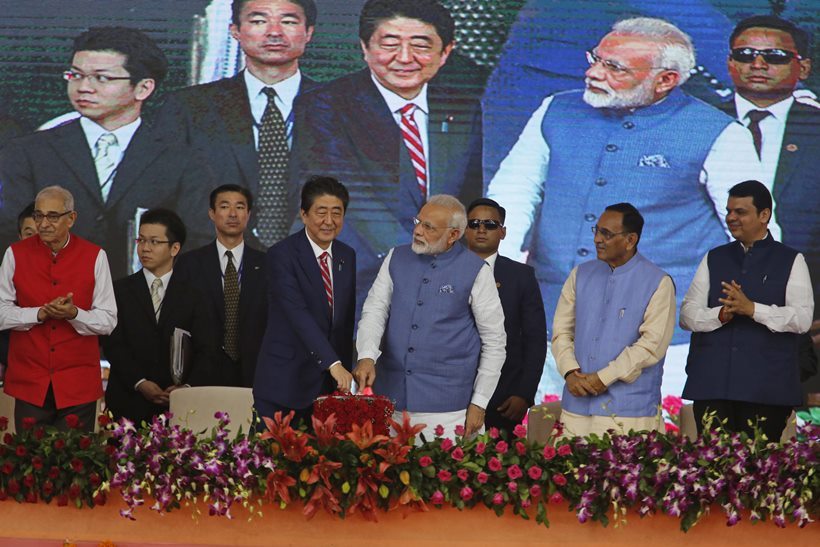India-Japan
September 14, 2017 | Expert Insights

In a joint statement, Indian Prime Minister Narendra Modi and his Japanese counterpart Shinzo Abe called for joint strategy to ensure peace and prosperity in the Asia – Pacific region.
Abe and Modi resolved to develop strong India – Japan ties to underpin the regional order.
Background
India and Japan traditionally have strong ties with one another. They are two of the largest and oldest democracies in Asia. The two nations have become closer in the recent years in order to counter the rise of China.
Japan’s foreign direct investment in India has risen since the global financial crisis, reaching nearly $3.5 billion in 2016. Japan is India’s 10th largest trading partner with the bilateral relationship worth about $14.5 billion.
Analysis
Japanese Prime Minister Shinzo Abe, is currently on a two-day state visit to India. During this visit, he held bilateral talks with Indian Prime Minister Narendra Modi. He also attended the 12th India-Japan annual summit in Ahmedabad, Gujarat. Modi and Abe laid the foundation stone for the India's first bullet train project.
The two-day visit was also marked by the nations announcing their intent to strengthen their cooperation to address international security concerns such as terrorism. In a statement that was released on September 14, 2017, the countries said, “PM Narendra Modi and PM Shinzo Abe look forward to convening the 5th Japan-India consultation on terrorism and to strengthen cooperation against terrorists threats from groups."
Abe and Modi, who held talks in Gandhinagar, the capital of the western India state of Gujarat, also agreed to promote defense and maritime security cooperation between their countries amid China’s assertive activities in the Asia-Pacific region.
In a statement released after the summit, the two leaders urged North Korea to “abandon nuclear and ballistic missile development and refrain from any provocative act” after it conducted its sixth nuclear test on September 3rd following its launch of a ballistic missile that flew over Japan in late August.
Tackling another security challenge facing both countries, Abe and Modi, in a show of unity, reaffirmed the significance of “freedom of navigation at sea, overflight and unobstructed trade based on international law,” apparently in reference to China’s expansionary activities in the South China Sea.
In the statement, Abe and Modi said they will continue discussions on the possible export to India of the Japanese Maritime Self-Defense Force’s US-2 amphibious aircraft for search and rescue purposes. But its high price tag has prevented the two countries from reaching a deal, Japanese officials said.
With regard to cultural exchanges, Abe pledged to offer support in opening Japanese language courses at 100 higher education facilities in India and training a total of 1,000 Japanese language teachers over the next five years.
Assessment
Our assessment is that Abe’s state visit signals a closer relationship between India and Japan that is based on common security concerns rather than just bilateral trade. The focus of Japan – India ties is to take the lead towards peace and prosperity in the Asia – Pacific region and the world.








Comments